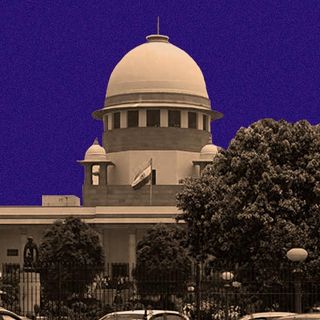The Supreme Court’s been on a roll lately. After decriminalizing Section 377 and adultery, today’s verdict has come as a huge win.
It has now ruled that women, irrespective of age, can enter Kerala’s Sabarimala Temple, putting an end to a centuries-old tradition that denied entry to women of menstrual age (10 to 50) as its presiding deity, Lord Ayyappa, is considered to be a celibate.
While four of the five judges on the Constitution bench headed by Chief Justice of India (CJI) Dipak Misra and Justices RF Nariman, AM Khanvilkar, and DY Chandrachud ruled in favour of allowing women in the temple, and formed a majority, the lone woman judge on the bench, Justice Indu Malhotra, presented a dissenting verdict.
According to her, the Court shouldn’t interfere with faith; what constitutes essential religious practice is for a religious community to decide, the wrote, adding that if a person has faith in a certain deity, that faith must be respected. She also said the personal views of judges are irrelevant in this particular case.
The other justices disagreed. Justice Nariman stated that women are equally entitled to enter temples, and their restriction cannot be treated as a religious practice; CJI Misra said law is meant to level society and denying entry to Hindu women is violating their right to practice religion under Article 25. Justice Chandrachud added that one can’t use religion as a cover to deny women’s right to worship and said, “The ban says presence of women deviates from celibacy. This is placing the burden of a men’s celibacy on women. Stigmatises them, stereotypes them.”
The Sabarimala head priest, Kandararu Rajeevaru reacted by saying, “Disappointed but will accept Supreme Court verdict.” However, Rahul Easwar, the President of the Ayyappa Dharma Sena, and one of the main activists who backed the ban, said in a press conference that, “Our core argument is that deity is a celibate. The deity is the core of the temple. The deity has a right and a soul, and if you are going to destabilise the soul, it will affect every temple. We will move the court [for a review petition] in the first week of October.”
On social media, where many people are celebrating the Court’s decision and its justices for yet another historic verdict, a pertinent question is also doing the rounds: Will women still want to enter the temple, even if they’re allowed?
To which, men — and women — have been saying: “My wife will still not enter the temple;” “I don’t think any ‘true devotee’ (including women) of Lord Aiyyappa would be happy about this order!” “Today, true devotees must be in pain hearing this;” and “No devout woman will risk it.”
While we’ll have to wait and see what women really believe in and do, the verdict is progressive because the right to pray should not be discriminated on the basis of gender. With it, women’s entry is no more an imposition for others to limit, but a choice for them to decide.
As one tweet pointed out, “Congratulations, men! you have one less worry. you have one item off your itinerary. you don’t have to worry about making decisions for women on whether they wish to go to a shrine or not. The supercool bench has confirmed that it women [sic] can decide for themselves.”
But like always, if we really want to see women entering temples while they are menstruating, the change will have to begin at home. Remember restrictions on entering kitchens, touching pickle jars?




